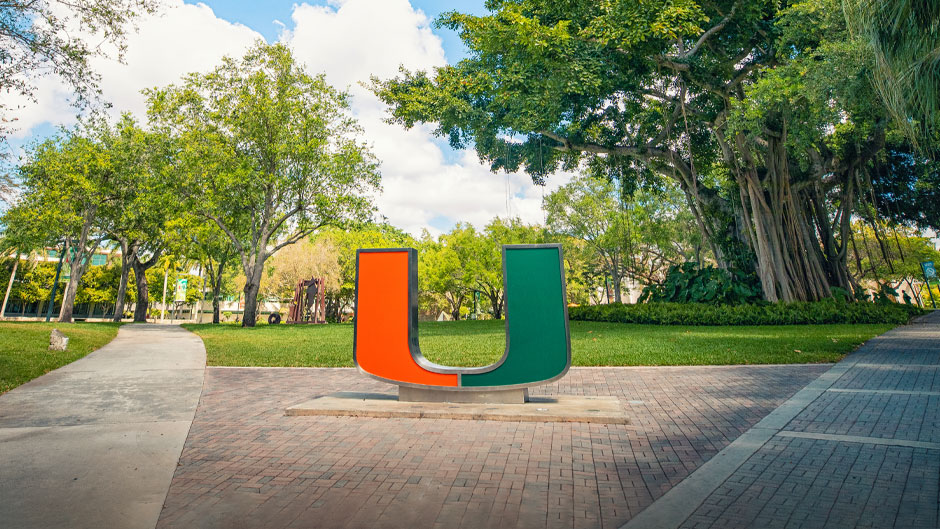The University of Miami recently has been challenged for its enforcement of public safety policies during the coronavirus pandemic. Some have expressed concerns that the University’s efforts to identify and communicate with students and other community members about proper safety protocols may have violated their right to privacy.
“We have always had policies and procedures to guide how students conduct themselves on campus,” said Patricia A. Whitely, vice president for student affairs. “It’s more important than ever that we follow those policies during this pandemic, when the health and safety of individuals and the community are at stake.”
Whitely noted that new policies are in place due to the pandemic, but they reflect the same respect for personal privacy that has always guided the University’s efforts.
“I understand and sympathize with those who may be concerned about our public safety efforts, but this is a dynamic period of the pandemic and we need to remain vigilant,” she said. “We’re going to continually strive to achieve the right balance, so students and the broader community can have a safe but enjoyable and rewarding campus experience.”
Policies and procedures that have been previously in place, such as event registration, and new policies around pandemic protections, are critical to completing the fall semester and planning for a successful and productive spring semester.
As part of its pandemic response, the University is using technology such as the Symptom Checker and WIFI network logins to ensure that those on campus adhere to safety protocols, including testing. These digital efforts are intended to control the spread of the virus.
“This technology complements our testing, tracking, and tracing efforts, which is a benefit to everyone who visits our campus,” said Ernie Fernandez, vice president for University of Miami Information Technology and chief information officer. “Privacy is a paramount concern. Our University community expects this, and I’m confident that we’re striking the right balance between safety and privacy.”
Speaking about the University’s overall pandemic response efforts, Erin Kobetz, vice provost for research and scholarship, said, “We are taking steps that both promote personal safety and protect individual privacy.”
Kobetz, who oversees the University’s COVID testing, tracking, and tracing program, added: “Across the nation, our public health system’s response to the pandemic relies on identifying individuals who may be at risk and providing them with practical information, so they can protect themselves and others. The University’s programs operate the same way.”
University leaders have cautioned that there is no perfect response to the pandemic. In a community message, President Julio Frenk previously stated that feedback from students and faculty has led to modifications of the University’s pandemic response protocols.
In that spirit, University leaders are using these recent events as an opportunity to further review their contact tracing efforts and the ways they communicate about those efforts with the community, to ensure their intent and the protection of student privacy are understood by all.
The University was criticized, wrongly, for allegedly using facial recognition technology to identify students who attended a September protest.
David A. Rivero, chief of the University of Miami Police Department, emphatically denied that the University or his department utilizes facial recognition technology. “I want to make it very clear and unambiguous: The University did not use facial recognition technology in this matter. Period,” he said.
As the fall semester inches toward its conclusion in early December, the University remains focused on protecting the public health of the community—all students, faculty and staff members, and contract employees in custodial and food delivery operations.

